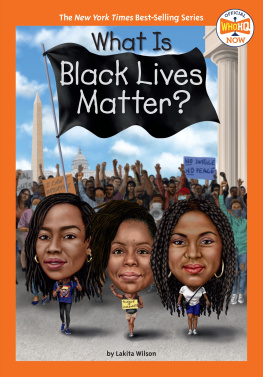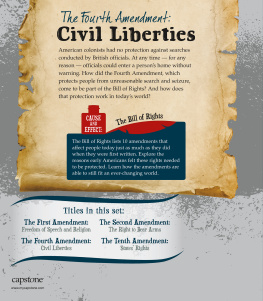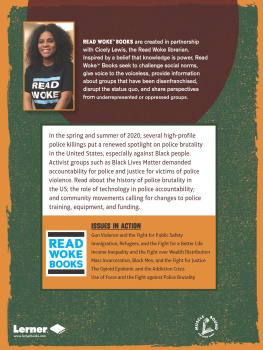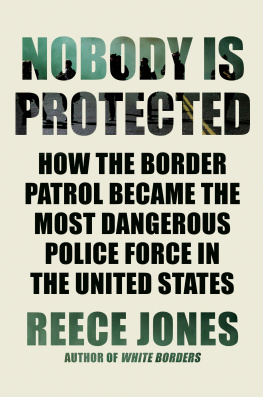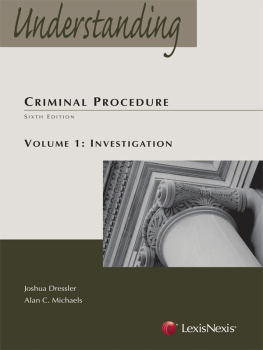Contents
List of Figures
List of Tables
Guide
Pagebreaks of the print version
Also by Devon W. Carbado
Acting White?: Rethinking Race in Post-Racial America
The Long Walk to Freedom: Runaway Slave Narratives
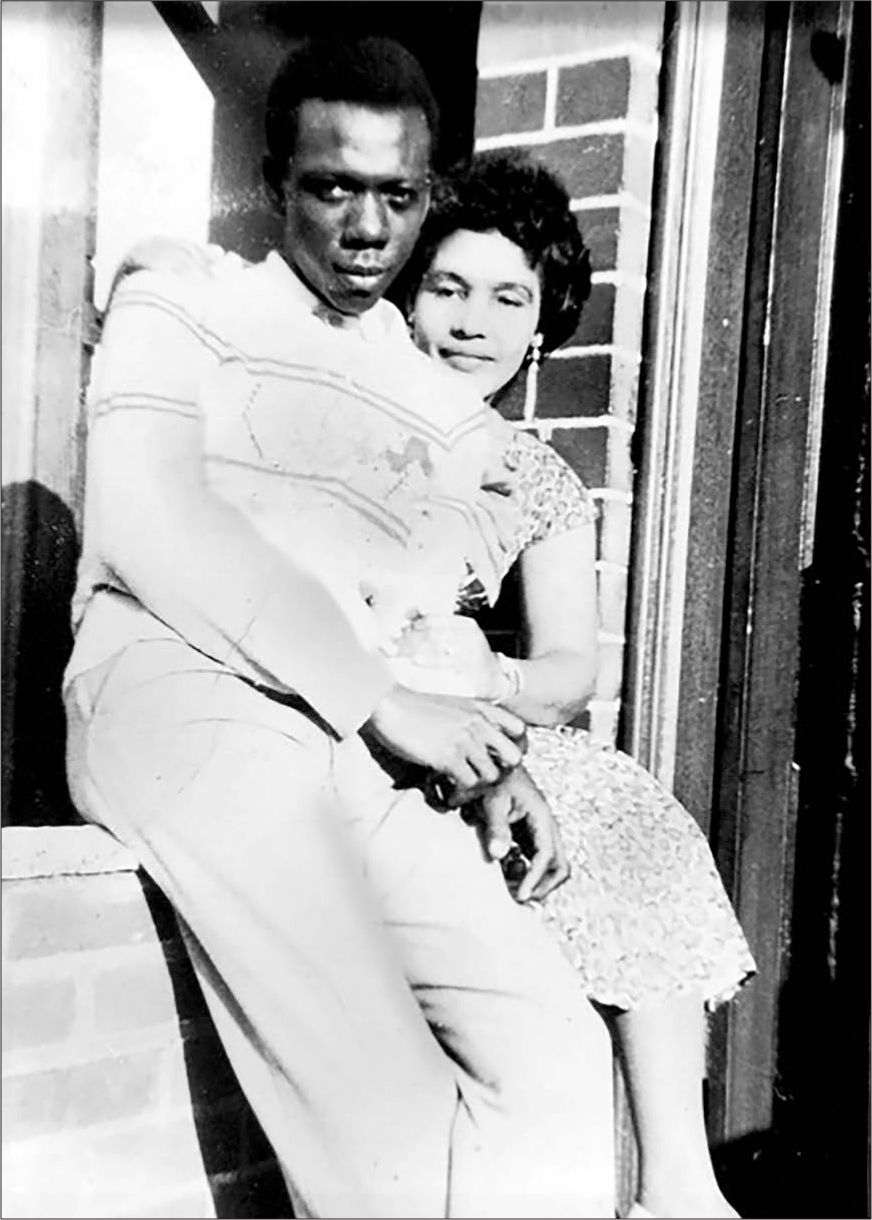
For my parents Bela Silvera Carbado and George Carbado
Contents
Prologue
I still remember the day I became a Black American. I wasnt born oneto borrow from a point Simone de Beauvoir made about women. Indeed, I wasnt born American at all, but immigrated here from my birthplace of the United Kingdom.
But I became a Black American anyway. Before I freely embraced that identity, others ascribed it to me. That ascription meant that I was strictly scrutinized from the moment I left homein elevators, walking the streets, at department stores, in parks, at restaurants, at work, at the moviesto the moment I returned.
Resisting this scrutiny was virtually impossible. Blackness per se triggered it. There was nothing I could do to prevent myself from becoming a Black Americanand, more specifically, the historical figure of the Black American man.
Day after day, I would have some interaction, some episode, some moment, that facilitated my racial naturalization into Black American life. None of these naturalization ceremonies involved judges in government buildings in the middle of the afternoon.
And far too many involved police officers on public streets in the middle of the night.
One of my earliest racial naturalization ceremonies occurred shortly after I had purchased my first car: a $1,500 yellow Triumph Spitfire convertible. It took me a little over a year of saving almost every cent of my roughly four-dollars-an-hour wage to raise enough money to buy that car. For a very long time it was the most expensive thing I had ever purchased and the most valuable thing I owned.
I still remember driving the Spitfire off the lot homeSouth on La Brea. East on Olympic. South on Arlington. To 23rd Street. I was on cloud nine, convinced that I was living a piece of the American Dream. I had a car. I had a job. And, I was getting an education. I was miles ahead of where I would have been had I stayed in London.
Only a few months later, my sense of living the American Dream was deferred. One of my brothers and I were in the Spitfire, driving to a friends house around nine in the evening.
Our trip was interrupted by the blare of a siren (if youre Black, you can probably hear itthat classic American sound rings in the ears of every Black American with piercing familiarity).
On the one hand, I doubt that Im going to get every detail of what Im about to describe exactly right. On the other hand, the episode has for me been utterly and completely unforgettable.
My brother and I were on our way to Inglewood, a predominantly Black neighborhood south of Los Angeles; a police car had signaled us to pull over. One officer stationed himself beside the passenger door, the other approached my window. He directed his flashlight into the interior of the car, locating its beam, alternately, on our faces.
Anything wrong, officers? I asked, attempting to discern the face behind the flashlight. Neither officer responded. Things had already become decidedly unfriendly. I inquired again as to whether we had done anything wrong. Again, cold silence. Then, out of nowhere, one of the officers instructed, Step outside the car with your hands on your heads. We did as he asked. He then told us to sit on the side of the curb. Grudgingly, we complied.
We sat on the pavement, our feet in the road, our backs to the officers, our faces to the public.
We were racially exposed.
I asked a third time whether we had done anything wrong. One officer responded, rather curtly, that we should shut up and not make any trouble. Perhaps foolishly, I insisted on knowing why we were being stopped. We have a right to know, dont we?
Today I might have acted differently, less defiantly. But my strange career with race in the United States had only just begun. I had not yet lived in this country long enough to learn the ways of the police, the racial conventions of Black and Blue encounters, the so-called rules of the game: Dont move. Dont turn around. Dont give some rookie an excuse to shoot you. No one had explained to me that [i]f you get pulled over, you just keep your mouth shut . Dont get into arguments, and dont be stupid. It doesnt make a difference [that you did nothing wrong]. Just do what they tell you to do.
No one ever sat me down to have the talk, to explain to me that Black + Male + Non-Compliance = Contempt of cop,with no knowledge of what it meant to be a part of the social problem America labeled Black.
Making matters worse, English racism had not taught me these lessons. To begin, I was barely a teenager during the 1981 riots in Brixton, a relatively Black part of South London. Racially nave, I had not felt implicated in or triggered by the racialized backdrop of police violence that preceded that moment of civil unrest. Moreover, I was eighteen when I left London for Los Angeles, around the age at which I would have become particularly vulnerable to the so-called sus laws, or repeated instances of stop-and-search, the U.K. equivalent of stop-and-frisk.
I am not saying, to be clear, that back then, Black adolescents under the age of eighteen were safe from encounters with the police. They were not. Then as now, Black British childrenas young as ten years oldhave had to negotiate their relationship to law enforcement. The point is that, at eighteen, precisely the age at which I would have begun more freely to traverse the neighborhoods of London, encounters with the police almost certainly would have become a composing arrangement of my social life.
The short of it is that when I left London in the mid-1980s I had no consciousness about race and policing from which I could draw to temper my very undisciplined interactions with the officers. Whatever England had done to me, she had not taken away my racial innocence (or so I thought). I was a free person, to paraphrase my mother, who often described herself as a free women, despite her encounters with racism. I had the right to assert rights. Thus, I insisted in knowing what we had done to themor anyone elseto deserve what they were doing to us.
The officers discerned that I was not from the United States. Presumably, my accent provided a clue, although my lack of racial etiquettemouthing off to white police officers in a high crime area in the middle of the nightmight alone have suggested that I was an outsider to the usual racial dynamics of police encounters. Refusing to stay silent, asserting my rights, confronting authority (each a function of my pre-American Blackness), all signaled that I was not from here, and that I had not been racially socialized into nor internalized the racial survival strategy of performing obedience for the police.
One of the officers looked at my brother and me, seemingly puzzled. While there was no disjuncture between how we looked and the phenotypic cues for Black identity, our performance of Blackness could have created a racial ambiguity problem that the officers had to sort out. In other words, to the extent that the officers were racially committed to viewing us as criminals, or thugs, or troublemakers, our English accents might have challenged that perception.


